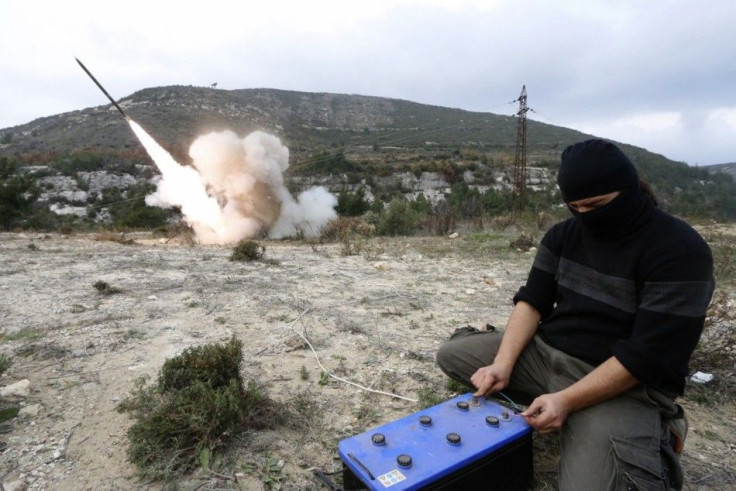Russia In The Hotseat Again This Time For Violating Nuclear Weapons Treaty, Could Face New Sanctions

Russia is under the nerves of the United States again, this time for allegedly violating Intermediate-Range Nuclear Forces Treaty, or INF. Russia recently tested a ground-launched cruise missile, which under the treaty signed by the late former U.S. President Ronald Reagan and former Soviet leader Mikhail Gorbachev, is strictly prohibited.
Reports said it was in July when Russia conducted the testing of an R-500 cruise missile, according to News Max. Portal GlobalSecurity.org described the cruise missile was derived from the Iskander-K. It said it used the same TEL carrier vehicle and control system as with the Iskander-M ballistic missile. Only that the R-500 was armed with a turbojet-powered cruise missile. GlobalSecurity.org believed the missile was developed to "ensure nuclear parity with China, which is not a signatory to the treaty and within range of such weapons."
As expected, Russia maintained the procedure was in compliance with the treaty. Signed in 1987 and implemented on June 1, 1988, the INF effectively eliminated both countries of an entire class of nuclear weapons. It stipulated that both the U.S. and Russia "cannot possess, produce or test-fly a ground-launched cruise missile with a range of 300 to 3,400 miles (482 to 5472 kilometres)," the AP said.
The elimination of all declared missiles and launchers under the Treaty was completed in 1991. The Treaty is of unlimited duration.
Brian P. McKeon, principal deputy undersecretary of defense for policy, said the U.S. has engaged Russia using various diplomatic approaches to discuss the matter, while discussing other potential measures in coordination with allies. But Russia remained withdrawing information, he said. The country was even adamant that it did not violate any rule under the treaty. What occurred instead was Russia accused the U.S. of violating its obligations under the INF treaty, McKeon said.
But McKeon, along with Rose Gottemoeller, undersecretary of state for arms control and international security, believed Russia's violations of the treaty had been long happening based on pieces of evidence that Congressional aides had gathered. Russia's violations were believed to have started way back 2008, or even earlier.
During the Cold War, both the U.S. and Soviet Union developed and deployed nuclear-tipped Air Launched Cruise Missiles [ALCM] and Sea Launched Cruise Missiles [SLCM]. Only the U.S. developed and deployed nuclear tipped Ground Launched Cruise Missiles [GLCM]. Quoting Robert M. Gates, Chairman, National Intelligence Council, and Deputy Director for Intelligence, Central Intelligence Agency, as telling before the Senate Committee on Armed Services and the Committee on Appropriations on June 1985, GlobalSecurity.org said Russian ALCM is the first in a series of deployments of long-range, land-attack cruise missiles. "Over the next 10 years, we expect them to deploy 2,000 to 3,000 nuclear-armed ALCM's, SLCM's, and GLCM's. The deployment of cruise missiles provides the Soviets with new multidirectional capabilities against U.S. targets," Gates had said 29 years ago.
The Pentagon, according to McKeon, had conducted a military assessment if Russia were to deploy a missile to Europe or the Asia-Pacific region that is banned under the treaty. Russia's noncompliance will generate three categories of military-related responses which are "active defenses to counter intermediate-range, ground-launched cruise missiles; counterforce capabilities to prevent intermediate-range, ground-launched cruise missile attacks; and countervailing strike capabilities to beef up U.S. or allied forces."
"We do not want to find ourselves engaged in an escalatory cycle of action and reaction," McKeon said. "However, Russia's lack of meaningful engagement on this issue, if it persists, will ultimately require the United States to take actions to protect its interests and security along with those of its allies and partners. Those actions will make Russia less secure. ... This violation will not go unanswered, because there is too much at stake."
Russian media, as early as 2005, have reported the government wants to withdraw from the INF treaty because it benefits the U.S. more than Russia. Sergei Ivanov, Kremlin chief of staff, said in June 2013 the U.S. doesn't need the weapon "because their effective radius doesn't extend to Europe... they could theoretically only attack Mexico and Canada with them... they face no regional threats to their security."






